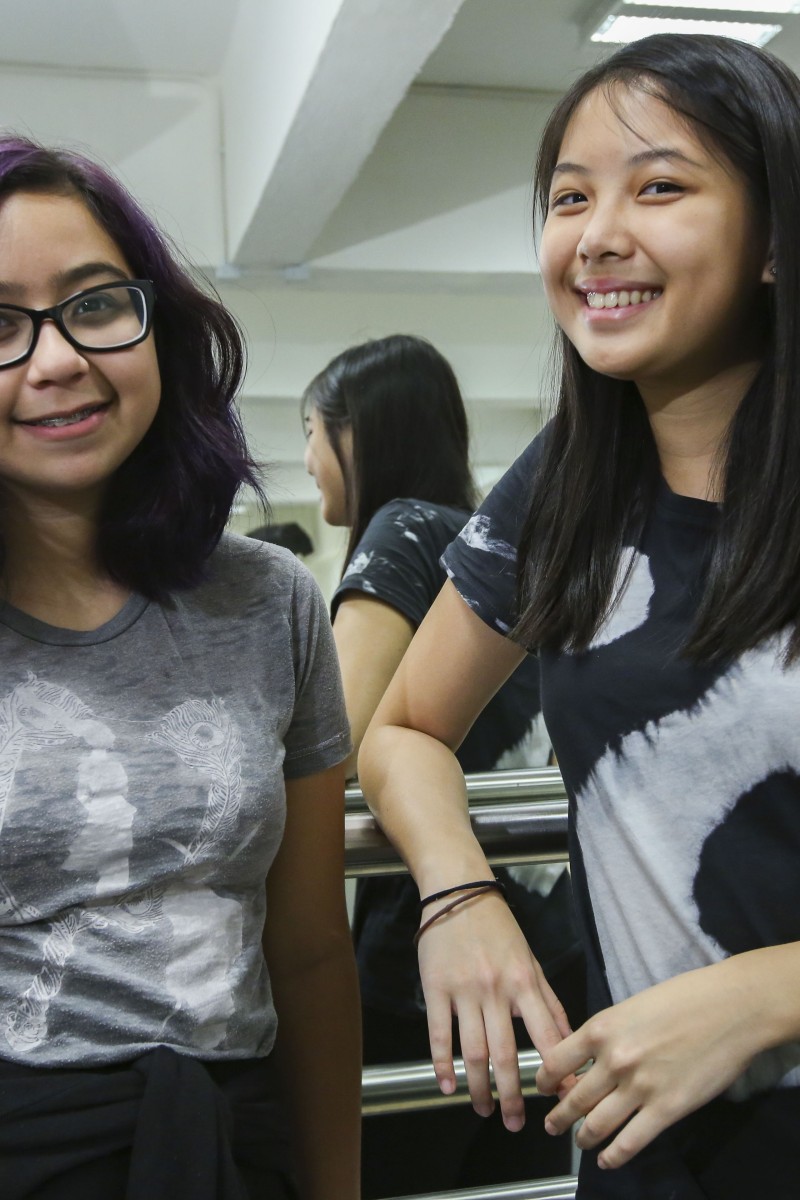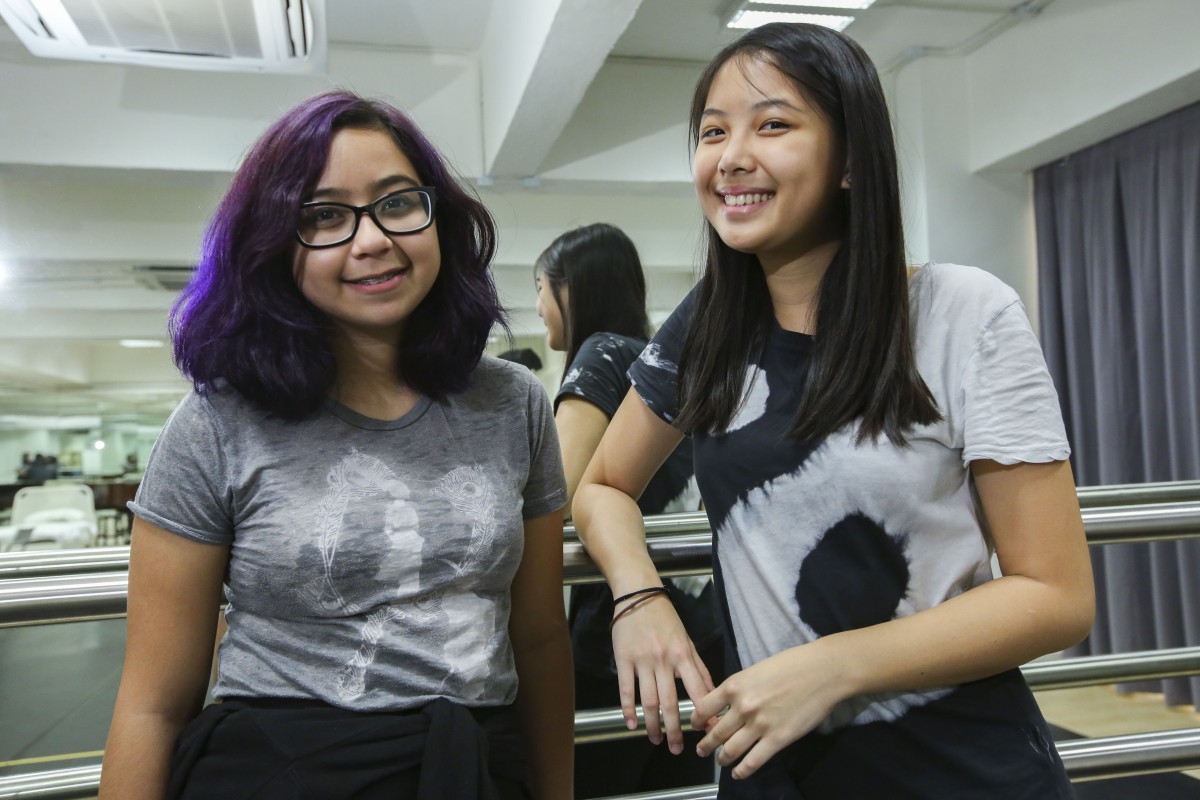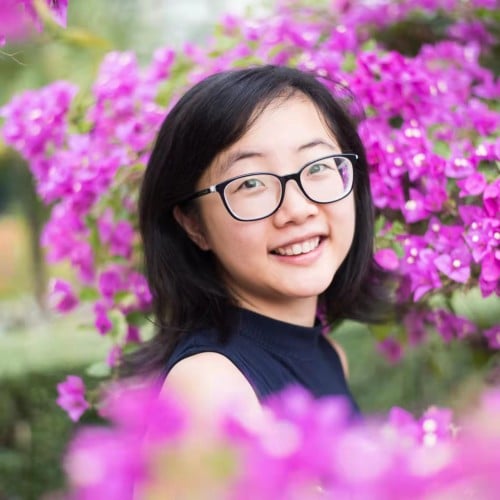
Students learn that scriptwriting is about more than putting words on a page at HKYAF’s workshops
Joining HKYAF’s scriptwriting workshops helped students Gingin Mak and Maya Greenberg discover a different side of theatre
 Maya (left) and Gingin wrote about things they truly care about at HKYAF's scriptwriting programme.
Maya (left) and Gingin wrote about things they truly care about at HKYAF's scriptwriting programme.For Year 11 students Gingin Mak and Maya Greenberg, theatre is a big part of life; but writing a script is new.
Gingin, a Renaissance College student, has acted before while Maya, from the Harbour School, has made costumes for school plays.
“I like the community that comes with theatre, because when you work on a production, you all just become a family,”
says Maya.
Wanting to dip their toes into a different aspect of theatre production, the girls took part in Hong Kong Youth Arts Foundation’s (HKYAF) Pull Back the Curtain, a three-month youth scriptwriting initiative with 22 other students. During a series of five workshops, they experimented with ideas and developed their writing skills.
“Putting the characters and who they are on the stage is a very different [experience]. Having that kind of ‘power’ is fun,” says Maya.
“It’s interesting to see the other side of the story in the process,” adds Gingin.
Maya’s play, The Sky Isn’t Blue, tells the story of a girl with bipolar disorder, how she reacts to it, how it affects her daily life, and her relationship with her best friend.
Home, Gingin’s play, follows a young girl who travels around the world alone to look for a new home, which reflects on the ongoing refugee crises around the world. Both plays stood out from the programme and will be performed as staged readings.
“The most exciting thing about teen writing is that they choose themes and issues that are current, because they’re very aware of what’s happening in the news and what’s happening in current affairs,” says Lindsey McAlister, founder of HKYAF and director of the performance.
She added that “the work is essentially very authentic” as the young writers are encouraged to write what they know.
Maya agrees, saying she takes inspiration from things that happen to her and people around her, and “life in general ... when I see something like a really pretty sky, I’d think [about how] I can write a scene where some characters just sitting in front of the sky and talking about it, for a scene in my play”.
Knowing this pushes her to seek new experiences and put them into words. “Writing everything is really nice, because you get to remember everything you feel in that moment and you have it forever,” says the writer.
Maya has a friend who suffers from bipolar disorder, and through extensive research she has done in the process of writing, she hopes she is now in a better position to support her friend.
Gingin, meanwhile, was hit hard by what she learned at Model United Nations in an educational simulation used to teach students about the life of a refugee, and realised it was something she wanted to raise awareness about. She draws inspiration from her own perspective on life: “No one else is going to see the world as you see it ... reflect and write is what I do,” she says.
The pair agree that finding something they’re eager to write about is easy, but they face different struggles when it comes to the writing process.
Gingin finds it hard to settle on one idea: “I had so many ideas, there are so many things I want to write about.”
Maya was anxious to ensure her accounts of mental illness were accurate, but also at times simply hit a wall. “Sometimes you just don’t know how to continue the story ... there are a lot of decisions that could change the entire story or what happens to the character; I didn’t know how to end mine,” she says.
Writer’s block is a common condition, and both Maya and Gingin say talking to other writers to see how they develop their stories helps them get past their own obstacles.
Maya enjoyed connecting with other writers on the programme; during the workshops, they would act out each other’s scenes. “Criticism is hard, but it’s fun to see what other people think about your stories.”
Watch Maya and Gingin’s staged readings at Chinese International School on December 1 and 2.
